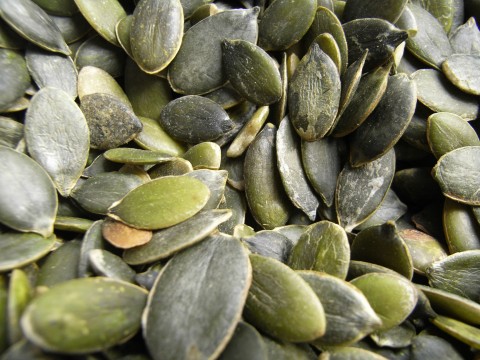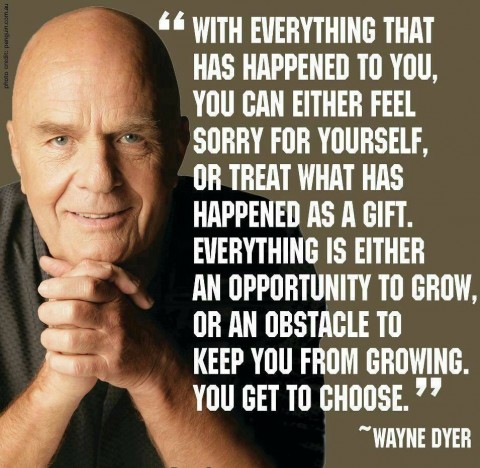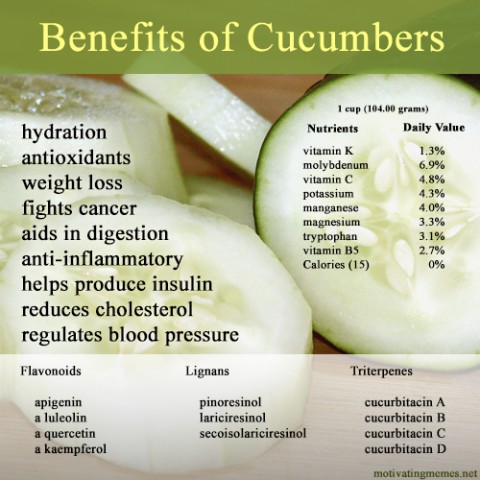Enjoyed this review by Tai Lopez of “The 50 Secrets of the World’s Longest Living People” written by Sally Beare (Nutritionist out of Bristol) which looks at the nutrition and lifestyles of the world’s five most remarkable longevity hotspots—Okinawa, Japan; Bama, China; Campodimele, Italy; Symi, Greece; and Hunza, Pakistan—and explains how we too can incorporate the wisdom of these people into our everyday lives.
Health
How to Make Pumpkin Seed Milk
 A healthy non-dairy milk is quite simple to make from a variety of nuts or seeds. I usually use almonds or pumpkin seeds. Here is the straight forward process I use to make some delicious and creamy pumpkin seed milk:
A healthy non-dairy milk is quite simple to make from a variety of nuts or seeds. I usually use almonds or pumpkin seeds. Here is the straight forward process I use to make some delicious and creamy pumpkin seed milk:
- Soak the seeds in water over night
- Drain the water the seeds were soaked in
- Blend the seeds with coconut water
- Strain milk with a cheese cloth or paint strainer by squeezing it through much like milking a cow… (You can get paint strainer bags that are perfect for this purpose at the hardware store for dirt cheap.)
- The pumpkin seed pulp that was strained out in step 4 can be mixed with oil, salt and spices to create a mouth watering pate´to dip chips or celery in.
I use the exact same process to make almond milk, and almond pate´is also very tasty. Enjoy!
Note: the coconut water gives it a natural sweetness, although if you use regular water you may want to add some dates or sweetener.
The Only 3 Great Exercises You Need
 I’ve been going to the gym 3 days a week for the last 6 months, and I’m in the best shape of my life. I’ve never given the gym a chance before, but I have a great personal trainer who has shown me the key exercises to build muscle fast. I notice a huge difference in how I feel. My self-confidence is through the roof, and I can feel muscles in my body that I never even paid attention to before. So without further ado, here are the top three exercises I recommend that anyone can do whether they have access to a gym or not.
I’ve been going to the gym 3 days a week for the last 6 months, and I’m in the best shape of my life. I’ve never given the gym a chance before, but I have a great personal trainer who has shown me the key exercises to build muscle fast. I notice a huge difference in how I feel. My self-confidence is through the roof, and I can feel muscles in my body that I never even paid attention to before. So without further ado, here are the top three exercises I recommend that anyone can do whether they have access to a gym or not.
1. Squats
This is one of the best possible exercises you can do to strengthen your core. I always do three sets of five with as much weight as I can handle for building muscle, and I go as low as I can keeping my weight on my heels. You can also do more reps with less weight if you’re going for burning calories. As a variation, you can do dead-lifts instead if you have access to a barbell.
2. Push-ups
Doing three sets of as many push-ups as you can handle will get your arms in shape fast. Keep dong them until you can’t push yourself up anymore. Wait 2-3 minutes, then do it again. Remember, if you feel any unusual pain don’t force yourself to keep going.
3. Pull-ups
Find a stable bar and do three sets of as many pull-ups as you can handle. Spread your hands further apart to target your back muscles more. This will make a huge difference if you keep it up. I went from barely being able to do 5 the first set to now being able to do about 11 in just six months.
In Conclusion
These three exercises will give you a toned and muscular body relatively quickly if you keep your goal in mind and do them consistently. Like I said, I work-out with variations of these three exercises 3 days a week, and it only takes about 20-30 minutes. No matter how bad I might feel before hand, I always feel so much better afterward from all the endorphins that are released. It’s truly amazing!
Disclaimer: Consult your doctor to make sure exercise is right for you. 😉
Top 10 Brain Health Tips by Dr. Michael S. Trayford
While there are many “Top 10” lists out there, this is a list I have compiled based on years of literature review and firsthand experience in clinical neurological practice. While no list is ever complete and priorities and orders of importance change with the literature and time; these are, in my opinion, the top 10 ways you can help your brain perform at its maximum potential…in no particular order. While we offer many advanced applications for boosting brain performance, these are tools that every one of us has at our disposal and can begin to implement immediately.
1) Get plenty of sleep – While there is no definitive number of hours proven to be the best for humans, it is suggested by most experts that a minimum of 7 hours of uninterrupted sleep be observed by most. Care should be taken to remove any barriers to achieving and maintaining sleep from the bedroom (i.e. TVs, computers, excess light, poor quality/old beds, etc.). Among other things, memories are formed when we sleep and improved quality and duration of sleep can stave off cognitive decline due to aging. Click here for a New York Times article on impaired sleep and memory decline.
2) Manage your stress – Stress, namely the long-term continuous stressors many of us face on a day to day basis (e.g. jobs, relationships, traffic, finances, etc.), and the ill-effects it brings on are touted as the root cause of the majority of chronic diseases of our modern society. There are countless techniques available to us to help us manage stress including meditation, journaling, counseling, prayer, yoga, NLP, Tai Chi, etc., and they all have their distinct advantages with regard to helping our brains perform better. The majority of the research on stress reduction and the brain has been done in the area of meditation. Click here for a link to a great book written on meditation and its amazing impact on brain function.
3) Exercise – We all know we should do it and we need to ‘Make the Time’ instead of trying to ‘Find the Time’. The evidence is irrefutable; exercise makes your brain work better…period! From increased blood flow carrying oxygen and nutrients to our ‘Greedy Master’, to production of chemicals that help us connect nerve cells and even grow new ones; we all need to exercise. Click here for a link to my blog post on a phenomenal book that will teach you everything you want to know about this subject.
4) Drink plenty of WATER – Notice the word water is capitalized! While the occasional naturally flavored drink of your choice is fine, water should be your main source of hydration as it will eliminate intake of sugars, sugar substitutes, artificial flavors/colors, etc. that can all be harmful to your brain. Our bodies are made up of roughly 60% water content and our brains are even higher at upwards of 70-80%. General recommendations for intake are currently accepted by many to be 1/2 of your body weight in oz. of water per day (e.g. 140 lbs = 70 oz.).
5) Eat the right kind of fat – Another area where our brain requires more, and the right kind of, raw materials is fat consumption. Under normal circumstances our bodies are comprised 20-25% fat and our brains approximately 60%. While I am unable to get into the biochemistry of fats in this limited space, adhering to a few simple rules can help get you off to a good start. Avoid at all costs processed, man-made fats that fall under the general heading of ‘Trans Fats’. These are dangerous for our brains and bodies in so many ways, many of which we do not even know yet. Also, minimizing saturated fat intake is advisable for most (e.g. red meats, butters, etc.). Poly and monounsaturated fats found in whole food sources (nuts, vegetable oils, greens, etc.) and omega-3 fatty acids found in fish and other whole food sources are desirable for a better brain. Click here for a recent article on fats and your brain.
6) Learn something new – Exercise for your brain! Learning new subjects, skills and hobbies can help to preserve and build your brain’s resources to ensure it functions at its highest ability as we move through this journey of life. Novel stimulation has been shown to enhance brain activity immeasurably; whereas routine, monotonous type behaviors will likely ensure a slow, steady decline in cognitive function over time. Google ‘Learning and the Brain’ and sift through the 132 million results for some light reading to begin the process of learning and remember…We are NEVER too old to learn!
7) Eat your fruits and veggies – The benefits of REAL/WHOLE foods in our diets is endless, especially fruits and vegetables. They are low-calorie and loaded with vitamins, minerals, antioxidants, good sugars and fiber; which are all good for our brain. So many of our foods are far from their original source, so begin to learn (which is also good for your brain) about the dangers of processed and genetically modified foods and you will begin to develop an appreciation for fresh, whole foods that power your brain much more efficiently!
8) Be social – Much to my dismay this tip is often left off of many “Top 10” brain health lists and could quite possibly be one of the most important factors for a brain to be able to survive and thrive! Numerous studies over the past 100 years have shown how social isolation can cause significant psychological and neurological impairment, and even death in extreme cases. Social isolation disrupts myelin production, which is critical for nerve signaling and transmission. Volunteer, join a book club or service organization, take a class, walk the neighborhood and talk to your neighbors…put yourself out there – your brain will thank you! Click here to read more on social isolation and decreased myelin production.
9) Eliminate bad habits – Drinking, smoking, laziness, poor diet, worry, anger, sedentary behavior, dangerous physical activities, etc…Need I say more?
10) Set goals and move towards them – Our brain’s ‘reward system’ is intimately linked to our older emotional (limbic) brain on one end, and our newer cognitive (cortical) brain on the other. That said, to help balance and improve function in either of these regions, exercising our reward system is a critical step in the process. Further, the neurotransmitter dopamine is a key player in this system and it is increased with repetitive utilization of this system (this is the same neurotransmitter in short supply in conditions like Parkinson’s!). Goals must be realistic and attainable, but also strong enough to stretch our mental capacities for optimal benefit!
~Please enjoy, feel free to comment, share with others; and, most importantly, put these to good use!~

The Power of Reframing
 Ever hear the saying, “Don’t cry over spilled milk?” It means a lot more than may be initially apparent. Often times, people beat themselves up over insignificant mistakes or shortcomings. Sometimes people have a single seemingly negative experience that causes them to form a limiting belief about themselves or the world which hinders their success. These people often appear bitter, jaded or insecure. All it takes is a small shift in thinking to transform their lives. One might tell themselves, “I’m so clumsy! I can’t do anything right.” or they can simply clean the mess and have more positive self-talk like, “It’s okay. That milk was probably going sour anyway.”
Ever hear the saying, “Don’t cry over spilled milk?” It means a lot more than may be initially apparent. Often times, people beat themselves up over insignificant mistakes or shortcomings. Sometimes people have a single seemingly negative experience that causes them to form a limiting belief about themselves or the world which hinders their success. These people often appear bitter, jaded or insecure. All it takes is a small shift in thinking to transform their lives. One might tell themselves, “I’m so clumsy! I can’t do anything right.” or they can simply clean the mess and have more positive self-talk like, “It’s okay. That milk was probably going sour anyway.”
In each moment, we are perceiving reality through the lens of our senses, and the way we choose to interpret it is completely unique to who we are and what we believe from past experiences. If you’re speaking and some dude walks out of the room, you might take it personally and think, “He must be bored by what I’m saying. I must be boring,” or you can have a more optimistic outlook and think, “He must really have to pee, because what I’m saying is awesome.”
 Focus on becoming aware of any negative belief patterns that surface in various situations, and take time to remember the earliest event that triggered you to think that way. Then, you can look for evidence to disprove the negative beliefs. For example, if you think you’re too fat to get a girlfriend, look for examples of fat men who have girlfriends. The more you prove to yourself that your fears are irrational, the easier it will be to switch to a more confident mindset.
Focus on becoming aware of any negative belief patterns that surface in various situations, and take time to remember the earliest event that triggered you to think that way. Then, you can look for evidence to disprove the negative beliefs. For example, if you think you’re too fat to get a girlfriend, look for examples of fat men who have girlfriends. The more you prove to yourself that your fears are irrational, the easier it will be to switch to a more confident mindset.
Ever since the movie “The Secret” came out, the idea that you create your reality has been spreading like wildfire, and whether you believe in the law of attraction or not, hopefully now you can at least see how you create your experience of reality which dramatically affects your actions and results. If you don’t believe something is possible for you, the motivation to strive for it will be nonexistent. Keep an open mind, and practice seeing things from different perspectives. If someone is feeling upset, see if you can say something that reframes what’s bothering them and shines a more positive light. Find ways of seeing your supposed weaknesses as strengths. If you feel awkward approaching people in social situations, and think you might be viewed as an annoyance, you might reframe it by flipping the script and thinking something like, “I’m awesome, and all these people want me to approach them.”
Joe asked God, “How much is a penny worth in Heaven?”
God replied, “$1 million.”
Joe asked, “How long is a minute in Heaven?”
God said, “1 million years.”
Joe asked for a penny.
God said, “Sure, in a minute.”
“Aaron T. Beck developed cognitive therapy in the 1960s. Beck worked with patients that had been diagnosed with depression, and found that negative thoughts would come into minds of these patients. Beck helped his patients recognize the impact of their negative thoughts, and aided them in shifting their mindset to think more positively—eventually lessening or even getting rid of the patient’s depression. This process was termed cognitive restructuring – the main goal of which was to rethink negative thoughts and turn them into positive thoughts“
20 Affirmations for Living Healthfully
 Here are 20 action packed affirmations for motivating yourself to make healthier choices.
Here are 20 action packed affirmations for motivating yourself to make healthier choices.
You’ll find that if you use these affirmations regularly they can start to reprogram your subconscious mind, and you can change your behavior effortlessly without even thinking about it. It’s a lot like brushing your teeth. You could think about it, but you’ve done it so many times that you can just do it on autopilot. That’s how affirmations, hypnosis, and visualization work to change our habits.
Say the affirmations out loud if you can with feeling. What you are saying may not seem true to you, but over time you may start to notice your thoughts, attitudes, words and actions transform.
- With each and every breath I am becoming healthier.
- I am making healthy choices.
- I choose to enjoy a healthy lifestyle.
- I enjoy finding new ways of improving my health.
- Nutritious foods are delicious.
- I love drinking water.
- I live in a state of gratitude and wellness.
- I am nurturing my mind, heart, body, and spirit.
- I take my time and breathe deeply.
- Moving and stretching my body feels wonderful.
- I’m getting inspired to eat food medicinally.
- I give thanks for my life.
- I’m grateful to be healthy.
- I enjoy nourishing myself.
- I am feeling motivated to get healthy.
- I put good in, and I get good out.
- I am full of vital energy.
- Making juice and smoothies is exciting.
- Eating well keeps me buzzing with motivation.
- I’m sexy, and I know it.
9 Health Benefits of Carrots

Today, we’re going to dangle the carrot so-to-speak, and share some motivational reasons to include carrots in your lifestyle. They are wonderful in smoothies, juices, stir-fries, salads, and even as a stand-alone snack. They are great for dipping too! There is really nothing like crunching on a raw carrot as a delicious and healthy afternoon snack. Make sure to buy organic though, because carrots are on the dirty dozen list, and are therefore known to have high amounts of pesticide residue when grown conventionally.
1. Carrots are the best source of beta-carotene which the precursor to vitamin A which is essential for eye health, the immune system, healthy skin, regenerating damaged cells, and mucus membranes.
2. Carrots contain a considerable amount of vitamin K. Vitamin K ensures that the clotting factors in your blood work properly, and it also is essential for optimal bone health and bone growth.
3. Another great thing about carrots is that they are high in fiber which aids in digestion, constipation, maintaining bowel health, lowering cholesterol levels, controlling blood sugar levels, and weight loss.
4. Potassium is very important for a healthy and balanced lifestyle, and carrots are loaded with it. Not only does potassium act as an electrolyte, it is necessary for maintaining healthy brain, heart, kidney, muscle tissues and other important organs of human body.
5. Carrots are a very good source of Vitamin C which is good for strengthening the immune system, cardiovascular health, preventing strokes, eye health, smooth skin, reducing cellular DNA damage, repairing damage from smoking, and so much more.
6. Manganese when combined with calcium, copper, and zinc is used for strengthening bones, and carrots are a good natural source.
7. Carrots contain a large amount of anti-oxidants which helps fight free radicals, cancer and heart disease. Carrots also contain falacrinol which may protect against colon cancer, lung cancer and breast cancer.
8. We can feel satisfied from eating carrots without eating too many calories, because they contain nicotine acid that breaks down fats and lipids. They are also very high in nutritional value, so that decreases our feeling of hunger by giving the body the nutrients it needs.
9. B Vitamins in carrots include B6 (pyridoxine), B3 (niacin), B1 (thiamine), and B2 (riboflavin). B vitamins work together to boost the metabolism, immune system and nervous system. They are also important for keeping the skin and muscles healthy, encouraging cell growth, and more.
Health Benefits of Cucumbers

